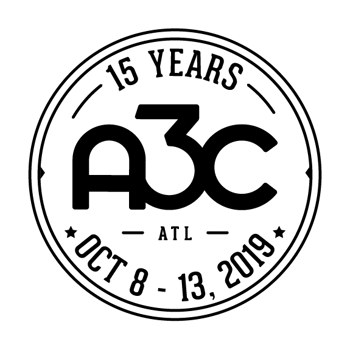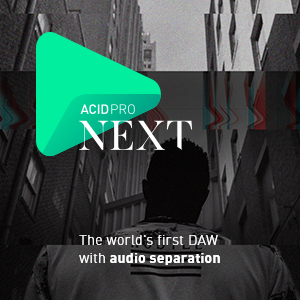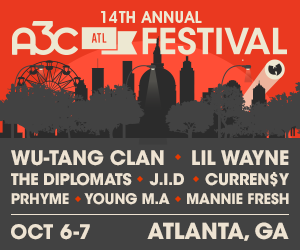I always say this and I mean it with all of my bones:
Music marketing isn't complex. Promoting your work isn't rocket science. But... that doesn't mean it's easy.
Think about all of the things people find "hard" in life:
You want to eat better? Okay, eat more fruits and vegetables instead of fast food.
You want to be more organized? Okay well, fill out your calendar and set a few timers.
You want to get your savings right? Fair enough, put money away and stop eating out so much.
See! These things are easy ... but only in theory. It's just having the willpower do get up and do it, and not rush the process. The same thing can be said for music.
You want to promote your music? Simple. Write a good pitch, be active on social media and make connections.
Pushing your work is about as straight-forward as it gets, but it involves nuance, detail and dedication. Sure, it involves knowledge of what makes a pitch good or bad, but that's teachable (which we'll discuss it here). But the hardest part of marketing your music is having the will-power and patience to see it through.
Folks go broke trying to rush the process -- I've seen indie labels, major-affiliated labels and well invested artists fold, all because they tried to buy success. When in reality, they just needed to slow down, be authentic and make peace with how long the process is taking. Something isn't getting picked up by press? Just tweak it and re-attack. Don't buy onto blogs with shady deals, or look into iffy email blast services, and definetly don't give up. Just work it through.
Remember: This is a marathon, not a race. Persistence is the key to a successful music career.
Okay, so, that's all great and inspirational -- but let's be real. You can be persistent, but if you're persistently marketing badly and persistently spamming writers you still won't go anywhere. That's why it's key to market appropriately, and professionally.
So, if you're hitting dead ends with writers and getting turned down left and right-- here's some reasons as to why.
1) You're Doing This:

The above is a real-life pitch that I've gotten a few times in my inbox. It's marked up in red, but essentially it's an email saying: Listen to [Artist] and includes a link. And that's it.
And while I'd love to say this is an isolated incident, I get about three or four of these a week. Which, first, baffles me because I'm not a music writer, but secondly, it baffles me because... how can you think this is a good idea?! It's just a URL and (sometimes) a bio.
Guys -- Major labels don't even do this. Major signed artists still send press pitches that have an actual message, so what makes youthink you can just send a link, and expect the media world to go nuts?
This practices comes from the eblast/pay-for-post culture that's become so common in hip hop. In a lot of marketing circles, freelance writers will get your song "posted" on a handful of big blogs. While at face-value it seems great, because your song will be on a huge blog. However, it's generally just a copy and paste of a bio, and a link. It's also rarely shared on social media, and it's not featured on a home-page section. So, it might be good for SEO, but at the end of the day, it's just a link on some random URL on a website.
It's not starting a conversation with the reader, it's just.. a bio and a link.
After years of "marketers" offering this to rappers: "send me your bio and a link and I'll blast it out", some artists think that this is all it takes to pitch press. So they take it into their own hands.
But let's remember this: A writer gets hundreds of pitches every single day. Hundreds! What's going to make you stand out? A soundcloud URL? Or an authentic message, that tells the writer about you, and why they should care? (Hint: It's the last one).
This isn't just for emailing press either! This goes for Twitter and social media, too! If I get a message saying:
"Hey Tyler, would love if you checked out my latest track! [link]." 99% of the time, I spin it. I love hearing new work, and if you follow me on Twitter you know that I'm constantly asking artists to send me the work their most proud of.
On the flip side, every now and then I get this: "@WTylerAllen http://soundcloud.com/artist/567890 🔥"
Now, how is that going to make me stop what I'm doing and listen? Was the fire emoji supposed to reel me in? It's especially bothersome when I go to the artist's page and they send the same link to 500 others. Just make it personable. At least say "hi".
Remember: PR is about building relationships. Randomly sending links or lazy pitches, aren't building a connection at all. It's just.. spam. Your messages to press (and fans, and human beings in general) should be messages that are authentic and build connections.
2) Your Pitch is Too "Stock"
You want writers and fans to feel "special" when you share your music. Writers get so many emails a day -- so they need to feel important, and not just another writer on your list. While it's bad to go too simple like above, and just give them a URL, it's also bad to go into too much detail and seem a bit too copy and paste.
Here's a few examples:
Example One: Too Short & Impersonal
"Hello,
Want some great music for your blog? Check out Rod Rampage and his latest track, "Sega Genesis" today. The people love it! Hope you do, too!
[SoundCloud Link]
Thanks."
Example Two: Too Long & Impersonal
"Good Morning,
I wanted to send you over information for Rodney Simmons, who goes by the stage name, Rod Rampage. Rod Rampage was born and raised in Marietta, Georgia, however, his father was an active Army soldier, so from a young age he was forced to move around quite a bit. While this was adventurous for Rodney, it also meant that he was constantly readjusting to schools, and meeting new friends along the way.
One of the people that influenced him the most was his 6th grade music teacher, Mr. Jefferson. Mr. Jefferson was a strict teacher, and would always get onto Rodney about talking in class, but with his harsh hand came blessings too, as he taught Rodney his first scale on the piano. Fast forward to high school, Rodney played piano at a school talent show, recreating hip hop melodies into stripped down piano master pieces. This was the first time he had an idea for producing actual hip hop songs.
Influenced by Kendrick Lamar but also the old school like ATCQ, Rodney began his journey into production, which later led to his first EP which was a good effort but ended up only getting minimal coverage due to..
....
...
..
.
(Okay, Y'all get the point..)
I hope you check him out at RodRampage.com"
--
Okay, so example number one was way too short, it gave no "reason" why the writer should care, and it sounded like it could've been sent to any writer -- which doesn't make that writer feel important.
Example two was way too long -- it went into way too much detail, and never really told the writer why they should care. Unless the writer was touched by the moving story of being a military kid.
The example below is the perfect combination of the two, check it out:
Example Three: The Middle Ground.
"Hey James,
I came across your recent article on Chance the Rapper and all that he does for the indie world. So, I thought I'd give you a little taste of what I'm bringing to the indie community, too.
My name is Rod Rampage, and I just wrapped up my first regional tour, was selected to perform at A3C and my latest single, Sega Genesis, just broke 20K streams on SoundCloud! Since Sega has done so well online, we're rolling it out to college radio next week, and we'd love if you would considered it for placement. I'm also including my EPK below which has further links, a bio and hi-res photos.
Hope to speak soon, James.
[Song Link]
[EPK Link]
Thanks again,
Rod Rampage."
--
Notice The Following:
- The writer's name, "James", was named. I also included a recent article he did, so now he knows you are sending this personally, not robotically.
- I gave him reasons to care: 20K streams on SoundCloud, was chosen for A3C, etc...
Sure, you may not have these accolades, but even something small like "good social media feedback" should be mentioned to make him care. Or, let's say this is your next single after one already blew up -- that's another angle you can use.
- It was two paragraphs (barely), though it sums up all he needs to know. It wasn't too long, but also wasn't too short.
Having a stock pitch is just really impersonal. For instance, ever post a picture on Instagram and you get some robotic "Hey cool post!" comment and you know it's just an auto-message to get a follow? Or you follow someone and you get an auto-DM pushing their product or music?
Have you ever felt a genuine connection with those people? Likely not -- so, same thing. Why should a writer feel a genuine connection with you, if it's just a stock message you're sending to dozens of people.
You don't need a brand new pitch for every writer, but let them know you're familiar with them, or at the very least, the outlet they write for.
3) You Didn't Follow Up
There's some music writers out there who claim that if you don't hear back, take it as a hint, and move on. But I disagree. Sure, don't annoy the hell out of writers by following up daily, but by all means -- follow up.
I've worked both in and out of the music industry. I've worked with tech companies, event companies -- and during my agency days I worked with neurosurgery and solar panel companies. And no matter the industry one thing always remains: Writers are busy, and a polite follow-up email is normal protocol.
The worst thing that can happen: They still don't reply. Then yes, take the hint and move on.
The best thing that can happen: They let you know they checked out your work and the love it!
The second best thing that can happen: They let you know they checked out your work, and they didn't like it.
Why is this a good thing? Because you got a reply.
By getting a reply from a writer, you're still making a connection. This opens the door for you to thank them for their time, and ask them if it's cool to send stuff in the future (which: 9 times out of 10 they tell you that in the reply). So, unless it says "This sucks, never email me again", it's a small victory to get a "no thanks" reply from a writer, because you just built a relationship.
A lot of artists think that PR is promo.. but it's not. PR stands for public relations, or relationships with the public. Relationships with media, relationships with fans, relationship with influencers. Following up, and replying (even if they denied you) is the key to building relationships with writers.
Other pro tips are to genuinely <--- major emphasis, connecting with writers on Twitter. If you're just RTing their work to suck up to them, it's really obvious, but if you sincerely share their work on occasion and interact with a writer that you genuinely enjoy, it's a great way to build a connection.
Bottom Line: Follow-up once or twice a week. When you get the feeling you're being pushy, just move on.
4) You Gave Too Many (Disorganized) Options
In the spirit of being concise, you want your pitch to be straight-forward. This is tough for most artists because you likely have a single you're focusing on, but also a visual that didn't get much love, or an upcoming show you want to promote. While you might think it's best to pitch all your career stories in one email -- that's really information overload for a writer.
The point here is to ensure that the outlet has everything in one spot, and a clear concise image. You should make their job easier, not more difficult. So, let them know the goal. Feel free to throw in: "Check out the rest of my work in my EPK" if you'd like, but to keep it simple, let them know about your main focus, and really stick to that.
This also goes for the links and what you include in the email. Don't throw too much at them -- maybe hyperlink to the song you're promoting but let the EPK be your place for cover art, photos and bio information. This also keeps your email shorter, and in some cases, saves it from going into a spam box by including too many links.
It's also always good to note that your website, EPK, and social channels are "clean". By clean, I mean -- they're updated, they have the right sized photos and they have a good mix of content. Not just music links, not just memes -- but a combination of branded photos, links to music, and content that shows your personal side.
5) It's Might Not Be You
Okay, I don't want this one to become an excuse. I don't want this to be the go-to scapegoat if your music isn't picked up. So, let's be clear on this: It's possible to get your work covered. Very possible. However, sometimes -- the media landscape is just unpredictable. Sometimes Kim Kardashian tweeted about Taylor Swift and all the editors have their writers covering it.
The music writers don't want to do this, but they have to. It's their assignments. Similarly, you might've been expecting a wave of excitement from fans, but Drake just dropped a surprise single and Twitter is going wild. Or let's say you drop something and Frank Ocean decides to show back up that same day. These things happen. These things are going to distract writers and fans from your work.
And more commonly: Writers could just be busy. I've had writers get back to me a month later -- sometimes with a "yes", sometimes with a "no thank you". Just stick with it. If you posted something and you feel media is too busy with "breaking news" (however mundane it is) simply fire up that follow-up email sequence.
And well, sometime it is you, sometimes you need to tweak your creative, or even the track itself -- but don't forget, that a lot of times writers are busy and you just have to stay at it. Build connections, connect with writers on social media and through email. Establish those connections, so when things do get hectic for writers -- you have a few go-to connections you can hit up.
Closing Thoughts & Tips:
- Look into Boomerang and Gmail's "canned response" feature to schedule writer emails in advance.
- Looking for writer emails? Check out ZoomInfo, LeadFerret or.. a good 75% of the time, Google their name or check their Twitter bio.
- Collab with me. I offer "Launch Kit" packages that help artists with pitches, media lists, EPKs and more.



